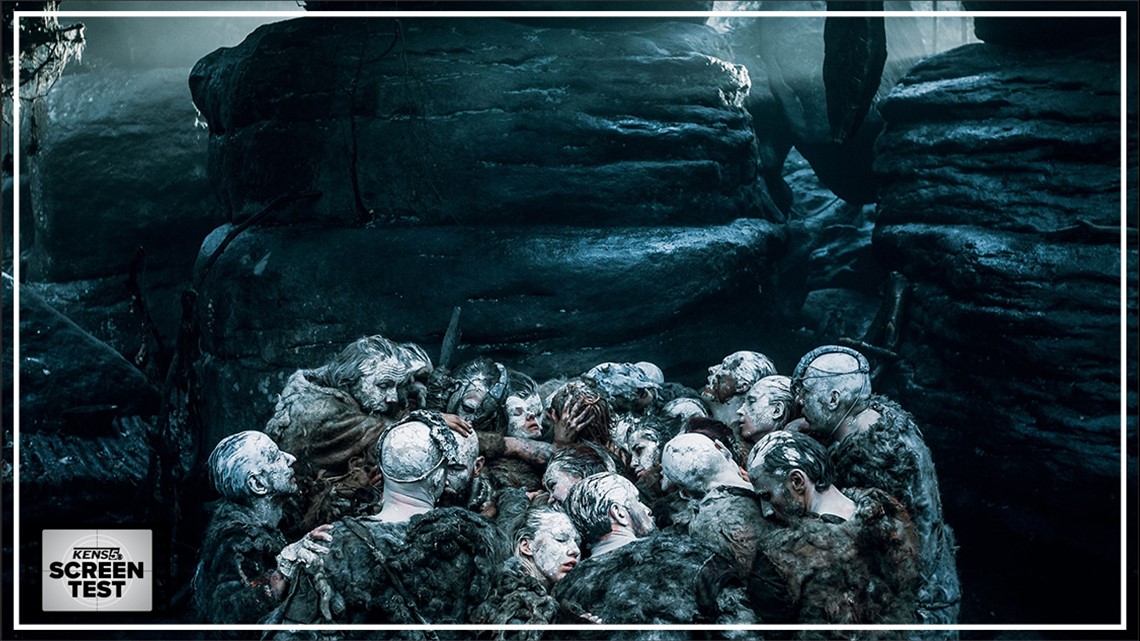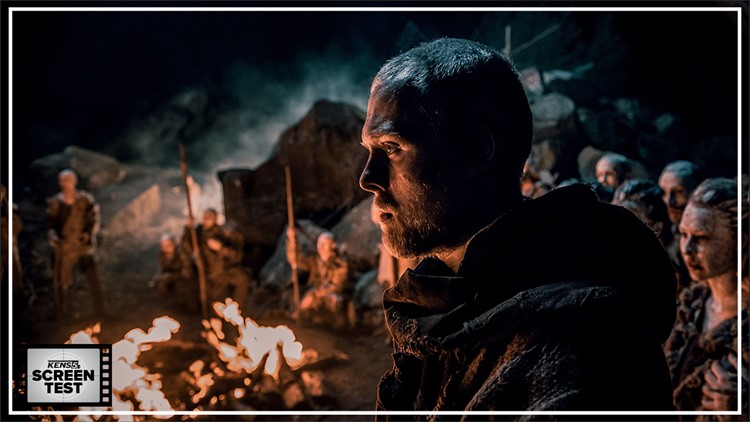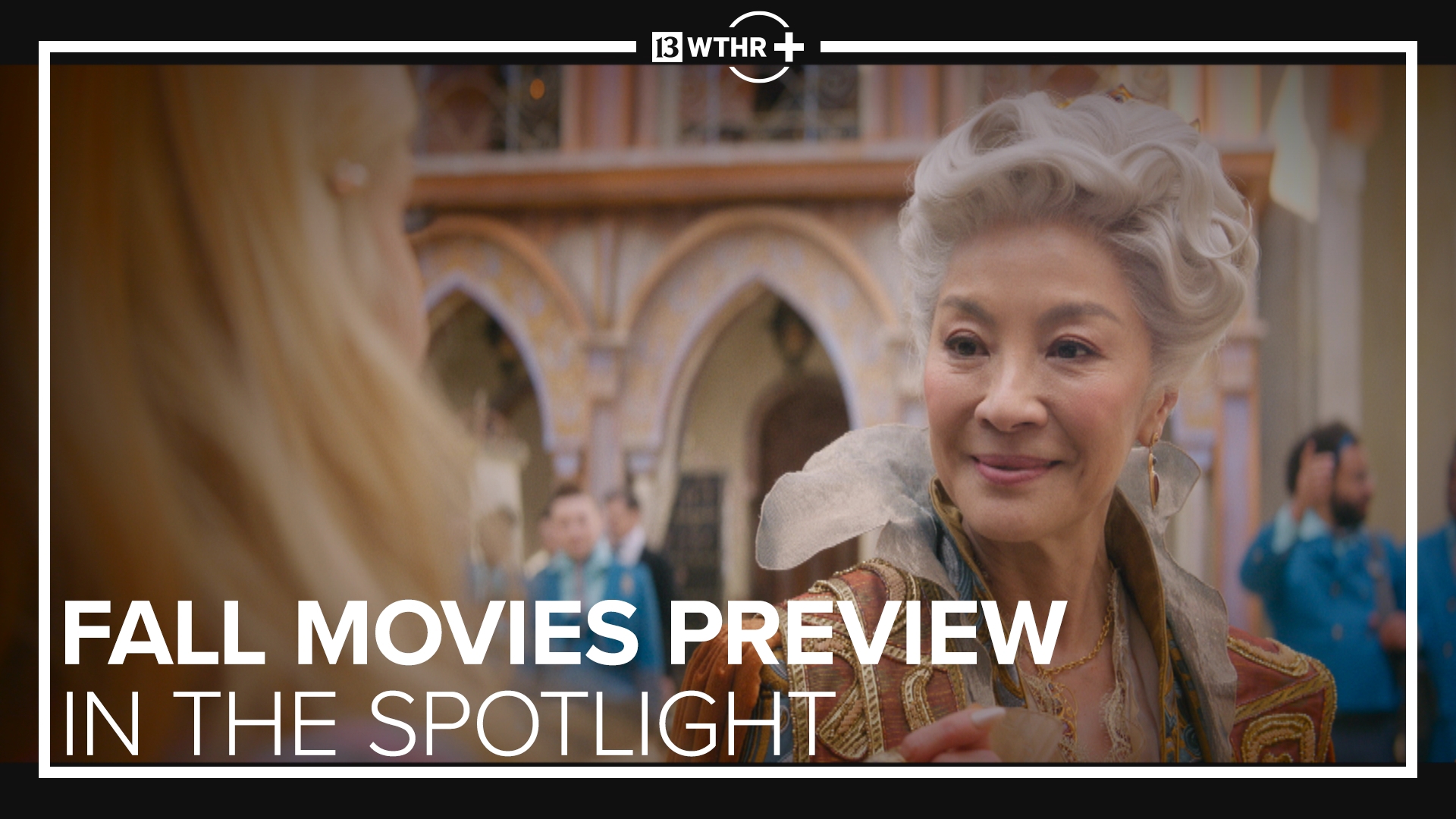Between the “God’s Not Deads,” “I Still Believes” and “Breakthroughs” of the world, faith-based cinema has staked a convincing claim in recent years on the enduring power of earnest – some might say overwhelmingly-trite – stories culminating in everyday peoples’ trust in a higher power, with audiences largely affirming the trend (only a handful of movies that showed on fewer than 3,000 screens last year made more than “Breakthrough’s” nearly $41 million). At the same time there have been more complicated examinations of the relationship between God and man, although Martin Scorsese’s “Silence” and Terrence Malick’s “A Hidden Life” – movies more interested in challenging audiences than consoling them – have tended towards briefer box office residencies.
“Sword of God” – which will be available via virtual cinema options from Film Movement on Friday after premiering at yesteryear festivals – also presents itself as a movie exploring religion, and yet it’s wholly unlike any of the titles listed above. Wavering between horror and brutal Middle Ages-era drama with the subtlety of an Eli Roth joint, the new offering from Polish director Bartosz Konopka is caked to its spiritual core in aesthetic mood—enough to drown out occasional whispers of profound pondering that ekes through in the film’s achingly good central performances.
The dueling intentions of Konopka’s movie – just the second feature in a career mostly made up of documentary and TV projects – might be evident in its delayed title change. “Sword of God” first had the much less haughty name of “The Mute,” and those are the words we see in the movie’s opening credits before meeting two grimy missionaries, Willibrord (Krzysztof Pieczynski) and his unnamed companion (Karol Bernacki), who have landed on an island with the mission of spreading God’s teachings to the local denizens who have been swayed towards pagan beliefs.
But this isn’t a simple Sunday school lesson. Newfound dangers are accentuated when the missionaries discover human remains suspected to be all that’s left of the Christian teachers who came before, as well as demented and mischievously-lit images of the island inhabitants scraping away clay masks amid ritual as if tearing into their very flesh. Violence is ready to rear its head at any moment, that much is clear. But for whom, and by whose hand, is a narrative sleight-of-hand that lies in wait in the screenplay, a collaboration between Konopka, Przemyslaw Nowakowski and Anna Wydra. For them, divinity is rooted in the diabolical.
There’s a presumption of threat toward Willibroad and his partner as they make contact with the local shaman and his followers, but it isn’t the sparse story that supports that sensation so much as extravagantly stylized visuals and haunting environments of rock, wood and fire that make “Sword of God’s” solitary setting seem like a plane suspended between worlds. Or perhaps between heaven and hell. In ways almost resembling a silent film, narrative information in “Sword of God” is communicated via the unpredictability of Jacek Podgórski’s curious-cat camera, as well as the discordant wails and intimidating drums of Jerzy Rogiwicz’s musical score that effectively clue us into an anxiety so fervent you’d just as soon squint your eyes. I imagine Zack Snyder might recognize a touch of his own unabashedly dour style.
The problem with Konopka orchestrating such a confident swirl of morbid audio-visual fantasia is that the screenplay can barely balance it out; it does very little to provide the viewer with a means of navigating its full-throated aesthetic sermon. In what becomes a movie centered on dueling philosophies about the communication of divine teaching, narrative developments are distractedly thin—largely a result of illegible character development and motivations.


There are brief confessions between our two protagonists about their task and approach – and Konopka has said minimal dialogue is the intent – but the actions they take often feel like the result of a prior plot point you may have missed. We’re fortunate to have the capable Piecynski and Bernacki in the leading roles here; forlorn looks of despair that stretch across their face and across disagreements – and, eventually, across the pail of deathly consequence – are more revealing than words, and maintain a sense of humanity as the plunge into madness becomes more intoxicating. At right around 100 minutes, it’s hard to imagine “Sword of God” wouldn’t have been more interesting by spending a little more time establishing the main characters as beyond their sparring ideologies.
That they tend to blend into the dozens of white-faced extras filling the screen points to a movie that fashions itself a grand epic but is ultimately an airy, ultimately uninteresting parable. The movie may remind some of “Bone Tomahawk” in the way it interrupts patient storytelling with plunge-of-the-sword cruelty, but somehow emotional appeal is even harder to come by in “Sword of God” than in S. Craig Zahler’s depressingly grim horror-Western.
Which is unusual, considering where the story here ultimately goes; its final scenes, when tyrannical self-righteousness has given way to self-pity, should by all accounts pack an emotional punch as vividly felt as any of the movie’s intense images. “Sword of God” instead ends up resembling a work trying too hard to be understood, while making little effort to understand.
"Sword of God" is not rated, though it may be a bit much for the children in the family. Find virtual cinema options here.
Starring: Krzysztof Pieczynski, Karol Bernacki, Wiktoria Gorodecka, Jacek Koman
Directed by Bartosz Konopka
2020



